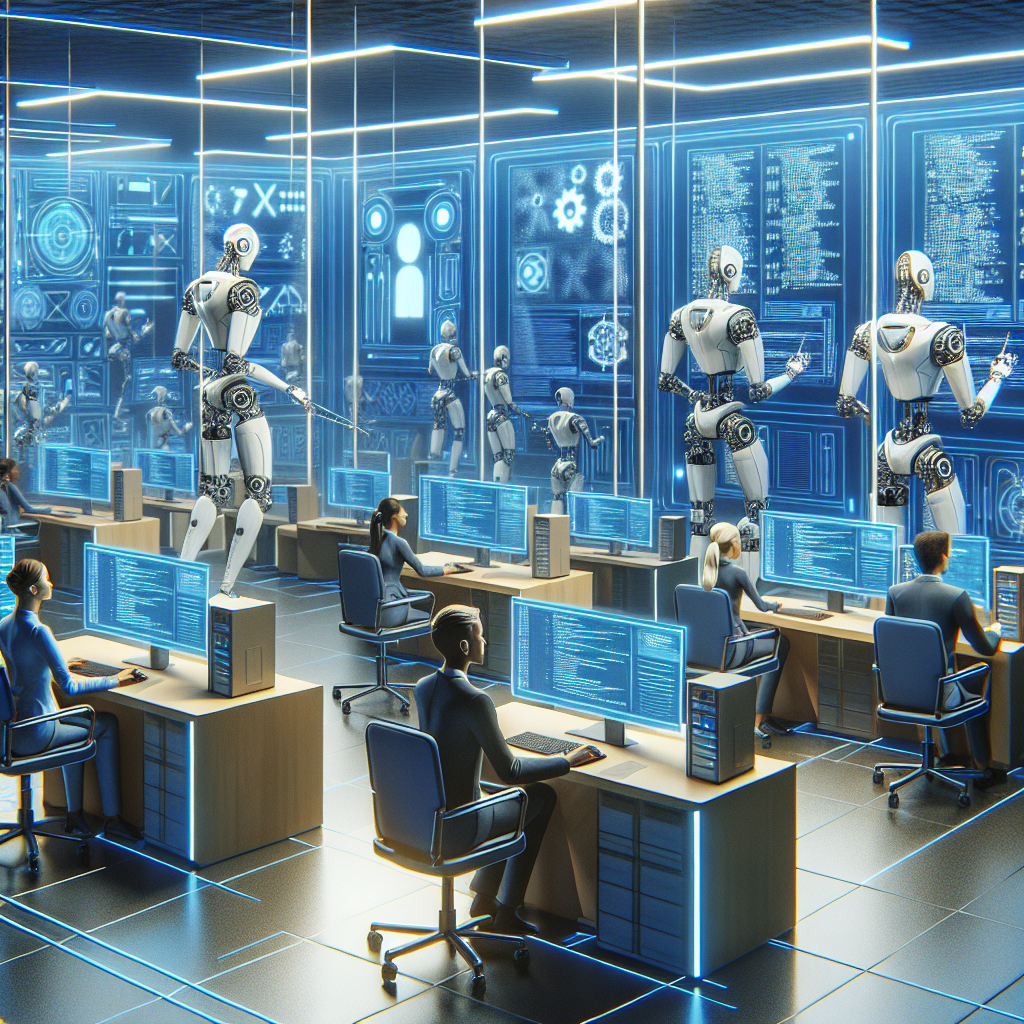AI Automation and the Future of Work: What to Expect
In recent years, the rise of artificial intelligence (AI) and automation has sparked both excitement and fear among workers around the world. While some see the potential for increased efficiency and productivity, others worry about the impact on jobs and livelihoods. So, what can we expect from AI automation in the future of work?
AI and automation have already made significant strides in industries such as manufacturing, healthcare, finance, and transportation. Robots and algorithms are increasingly being used to perform tasks that were once done by humans, leading to faster production times, lower costs, and improved accuracy. This trend is expected to continue in the coming years, with AI and automation playing an even larger role in the workforce.
One of the key benefits of AI automation is the potential for increased efficiency. Machines can perform repetitive tasks more quickly and accurately than humans, leading to higher productivity and lower costs for businesses. Automation can also free up human workers to focus on more creative and strategic tasks, leading to a more fulfilling and rewarding work experience.
However, the rise of AI automation also raises concerns about the impact on jobs. Some experts predict that automation could lead to the loss of millions of jobs in the coming years, as machines take over tasks that were once done by humans. This has led to fears of mass unemployment and economic instability.
Despite these concerns, many experts believe that AI automation will not necessarily lead to widespread job loss. While some jobs may be automated, new jobs will also be created to support and maintain AI systems. In fact, some studies suggest that automation could lead to a net increase in jobs, as businesses invest in new technologies and services.
In addition, AI automation has the potential to create new opportunities for workers. For example, AI systems can be used to analyze large amounts of data and make predictions, helping businesses make better decisions and improve their operations. Workers who are able to adapt and learn new skills related to AI and automation may find themselves in high demand in the future job market.
So, what can workers expect from AI automation in the future of work? Here are a few key trends to keep in mind:
1. Increased automation: As AI technology continues to advance, more tasks will be automated, leading to changes in the way work is done. Workers may need to adapt to new technologies and learn new skills to remain competitive in the job market.
2. Hybrid workforce: While some tasks may be automated, there will still be a need for human workers to oversee and manage AI systems. This could lead to a more collaborative work environment, with humans and machines working together to achieve common goals.
3. Upskilling and reskilling: To stay relevant in the future job market, workers may need to invest in upskilling and reskilling programs to learn new skills related to AI and automation. This could include training in data analysis, programming, and machine learning.
4. Flexibility and adaptability: The future of work is likely to be characterized by rapid changes and disruptions, as new technologies and business models emerge. Workers who are able to adapt quickly and embrace change will be better positioned to succeed in this new environment.
5. Ethical considerations: As AI automation becomes more prevalent, there will be important ethical considerations to keep in mind. For example, how can we ensure that AI systems are used responsibly and ethically, without discriminating against certain groups or infringing on privacy rights?
Overall, the future of work is likely to be shaped by the increasing role of AI automation in the workforce. While there are concerns about job loss and economic instability, there are also opportunities for workers to adapt and thrive in this new environment. By staying informed about the latest trends in AI and automation, investing in upskilling and reskilling programs, and embracing flexibility and adaptability, workers can prepare themselves for the challenges and opportunities that lie ahead.
FAQs
Q: Will AI automation lead to mass unemployment?
A: While some jobs may be automated in the future, new jobs will also be created to support and maintain AI systems. Studies suggest that automation could lead to a net increase in jobs, as businesses invest in new technologies and services.
Q: What skills will be in demand in the future job market?
A: Skills related to AI and automation, such as data analysis, programming, and machine learning, are likely to be in high demand in the future job market. Workers may need to invest in upskilling and reskilling programs to stay competitive.
Q: How can workers prepare for the impact of AI automation on the workforce?
A: Workers can prepare for the impact of AI automation by staying informed about the latest trends in AI technology, investing in upskilling and reskilling programs, and embracing flexibility and adaptability in their careers. By learning new skills and staying ahead of the curve, workers can position themselves for success in the future job market.

